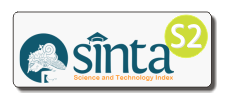Covid-19, Financial Markets (Islamic vs Non-Islamic), and Exchange Rate: Does the Malaysian Market Offers Diversification Opportunities to the Investors?
DOI:
https://doi.org/10.14421/grieb.2021.091-02Keywords:
Covid-19, Islamic Capital Market, Market Reaction, and Investment.Abstract
We explore the impact of Covid-19 towards Islamic and non-Islamic financial markets in Malaysia. We employ the wavelet coherency approach (WCA) which allows a deeper investigation of the relationship between the selected variables in terms time-frequency domain. We document that (i) Islamic capital markets represented by FTSEBMEI and MyETFDJIMMT25 are performing better during the Covid-19 period and also offer a greater investment opportunity to the investors for diversification purposes, (ii) non-Islamic index, FTSEBMKLCI, was less affected during this pandemic, and the market offers better risk and optimal diversification benefits to the investors as time progresses, and (iii) exchange rate appears to be more stable and within the phase category, indicating the co-movements are relatively strong in smaller scales. Understanding the impact of Covid-19 on the financial markets will lend to a better portfolio investment design which considers return and risk.References
Ali, M., Alam, N., & Rizvi, S.A.R (2020). Coronavirus (COVID-19) – an epidemic or pandemic for financial markets. Journal of Behavioral and Experimental Finance, 100341.
Al‐Awadhi, A. M., Al‐Saifi, K., Al‐Awadhi, A., & Alhamadi, S. (2020). Death and contagious infectious diseases: Impact of the COVID‐19 virus on stock market returns. Journal of Behavioral and Experimental Finance, 100326.
Ashraf, B. N. (2020). Stock markets’ reaction to COVID-19: Cases or fatalities? Research in International Business and Finance, 54, 101249.
Baig, A. S., Butt, H. A., Haroon, O., & Rizvi, S. A. R. (2020). Deaths, panic, lockdowns and US equity markets: The case of COVID-19 pandemic. Finance Research Letters, 101701.
Chen, C., Liu, L., & Zhao, N. (2020). Fear sentiment, uncertainty, and bitcoin price dynamics: the case of COVID-19. Emerging Markets Finance and Trade, 56(10), 2298-2309. https://doi. org/10.1080/1540496X.2020.1787150
CIMB. (2020). Annual report. https://www.cimb.com/en/investor-relations/annual-reports.html
Conlon, T., & McGee, R. (2020). Safe haven or risky hazard? Bitcoin during the Covid-19 bear market. Finance Research Letters, 35, 101607.
De Bondt, W. F., & Thaler, R. (1985). Does the stock market overreact? The Journal of Finance, 40(3), 793-805.
Devpura, N., & Narayan, P. K. (2020). Hourly oil price volatility: The role of COVID-19. Energy Research Letters, 1(2), 13683. https://doi.org/10.46557/001c.13683
Edge Report. (2020). SC annual report 2020: Islamic equities, bonds continued to lead in capital market. https://www.theedgemarkets.com/article/sc-annual-report-2020-islamic-equities-bonds-continued-lead-capital-market
Eichenbaum, M. S., Rebelo, S., & Trabandt, M. (2020). The macroeconomics of epidemic (National Bureau of Economic Research Working Paper No. 26882). https://doi.org/10.3386/w26882
Gu, X., Ying, S., Zhang, W., & Tao, Y. (2020). How do firms respond to COVID-19? First evidence from Suzhou, China. Emerging Markets Finance and Trade, 56(10), 2181-2197. https://doi.org/10.1080/1540496X.2020.1789455
Huang, W., & Zheng, Y. (2020). COVID-19: Structural changes in the relationship between investor sentiment and crude oil futures price. Energy Research Letters, 1(2), 13685. https://doi.org/10.46557/001c.13685
Ibbotson, R. G., & Chen, P. (2003). Long-run stock returns: Participating in the real economy. Financial Analysts Journal, 59(1), 88-98.
Iyke, B. N. (2020). The disease outbreak channel of exchange rate return predictability: Evidence from COVID-19. Emerging Markets Finance and Trade. https://doi.org/10. 1080/1540496X.2020.1784718
Khanna, T., & Palepu, K. (1997). Why focused strategies may be wrong for emerging markets. Harvard Business Review, 75, 41-54.
Kindleberger, C. P. (1978). Manias, panics, and crashes: A history of financial crises. John Wiley & Sons, Inc.
Kristoufek, L. (2013). Bitcoin meets Google Trends and Wikipedia: Quantifying the relationship between phenomena of the internet era. Scientific Reports, 3(1), 1-7.
Liu, L., Wang, E. Z., & Lee, C. C. (2020). Impact of the COVID-19 pandemic on the crude oil and stock markets in the US: A time-varying analysis. Energy Research Letters, 1(1), 13154. https://doi.org/10.46557/001c.13154.
Lyócsa, Š., & Molnár, P. (2020). Stock market oscillations during the corona crash: The role of fear and uncertainty. Researchgate. https://www.researchgate.net/publication/342380424
McKibbin, W. J., & Fernando, R. (2020). The global macroeconomic impacts of COVID-19: Seven scenarios. The Brooking Institution. https://www.brookings.edu/wp-content/uploads/2020/03/20200302_COVID19.pdf
Mishra, A. K., Rath, B. N., & Dash, A.K. (2020). Does the Indian financial market nosedive because of the COVID-19 outbreak, in comparison to after demonetization and the GST? Emerging Markets Finance and Trade, 56(10), 2162–2180. https://doi.org/10.1080/1540496X.2020.1785425.
Nagayev, R., Disli, M., Inghelbrecht, K., & Ng, A. (2016). On the dynamic links between commodities and Islamic equity. Energy Economics, 58, 125-140.
Narayan, P. K., Phan, D. H. B., & Liu, G. (2021). COVID-19 lockdowns, stimulus packages, travel bans, and stock returns. Finance Research Letters, 101732.
North, D. C. (1990). A transaction cost theory of politics. Journal of Theoretical Politics, 2(4), 355-367.
North, D. C. (1991). Institutions. Journal of Economic Perspectives, 5(1), 97-112.
Prabheesh, K.P., Padhan, R., & Garg, B. (2020). COVID-19 and the oil price –stock market nexus: Evidence from net oil-importing countries. Energy Research Letters, 1(2), 13745. https://doi.org/10.46557/001c.13745
Rahim, A. M., & Masih, M. (2016). Portfolio diversification benefits of Islamic investors with their major trading partners: Evidence from Malaysia based on MGARCH-DCC and wavelet approaches. Economic Modelling, 54, 425-438.
Ramelli, S., & Wagner, A. F. (2020). Feverish stock price reactions to Covid-19. The Review of Corporate Finance Studies, 9(3), 622–655. https://doi.org/10.1093/rcfs/cfaa012
Rua, A., & Nunes, L. C. (2009). International co-movement of stock market returns: A wavelet analysis. Journal of Empirical Finance, 16(4), 632-639.
Sakti, M. R. P., Masih, M., Saiti, B., & Tareq, M. A. (2018). Unveiling the diversification benefits of Islamic equities and commodities. Managerial Finance, 44(6), 830-850.
Salisu, A., & Adediran, I. (2020). Uncertainty due to infectious diseases and energy market volatility. Energy Research Letters, 1(2), 14185. doi:10.46557/001c.14185
Salisu, A. A., & Akanni, L. O. (2020). Constructing a global fear index for COVID-19 pandemic. Emerging Markets Finance and Trade, 56(10), 2310-2331.
Sharif, A., Aloui, C., & Yarovaya, L. (2020). Covid-19 pandemic, oil prices, stock market and policy uncertainty nexus in the us economy: Fresh evidence from the wavelet-based approach. International Review of Financial Analysis, 70, 101496. https://doi.org/10.1016/j.irfa.2020.101496
Star Newspaper. (2020, October 13). Budget 2021 to focus on recovery. https://www.thestar.com.my/news/nation/2020/10/13/budget-2021-to-focus-on-recovery
Thaker, H. M. T., & Ah Mand, A. (2021). Bitcoin and stock markets: A revisit of relationship. Journal of Derivatives and Quantitative Studies (in – press). https://doi.org/10.1108/JDQS-07-2020-0016
Wang, H., Narayan, P. K., & Devpura, N. (2020). Japanese currency and stock market—What happened during the COVID-19 pandemic? Economic Analysis and Policy, 68, 191-198.
World Economic Forum. (2020, October 13). Mad March: How the stock market is being hit by COVID-19. https://www.weforum.org/agenda/2020/03/stock-marketvolatility- coronavirus
Xiong, H., Wu, Z., Hou, F., Zhang, J. (2020). Which firm-specific characteristics affect the market reaction of Chinese listed companies to the COVID-19 pandemic? Emerging Markets Finance and Trade, 56 (10), 2231–2242. https://doi.org/10.1080/1540496X.2020.1787151
Yarovaya, L., Matkovskyy, R., & Jalan, A. (2020). The effects of a “black swan” event (COVID-19) on herding behavior in cryptocurrency markets: Evidence from cryptocurrency USD, EUR, JPY and KRW Markets (SSRN). http://dx.doi.org/10.2139/ssrn.3586511
Zhang, D., Hu, M., & Ji, Q. (2020). Financial markets under the global pandemic of COVID-19. Finance Research Letters, 101528.
Downloads
Published
Issue
Section
License
Global Review of Islamic Economics and Business is licensed under a
Creative Commons Attribution-ShareAlike 4.0 International License



















